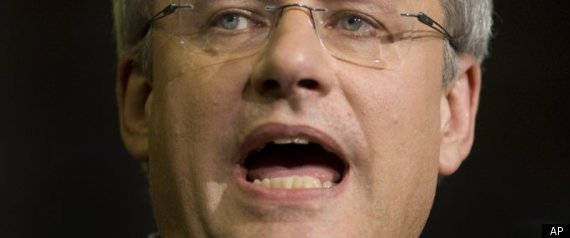 OTTAWA - It was a day of giving and taking away for Canada's registered federal political parties, but its impact will be felt for years.
OTTAWA - It was a day of giving and taking away for Canada's registered federal political parties, but its impact will be felt for years.The Conservative government introduced a bill Tuesday that, among other things, makes good on a campaign promise to phase out the per-vote subsidy provided to parties since 2004.
The legislation arrived at the same time as quarterly cheques from Elections Canada based on the results of the May 2 vote, a $7.4-million quarterly bonanza that has become the mother's milk of Canadian federal politics.
"Political parties should do their own fundraising and not live off of taxpayer-funded handouts," Tim Uppal, the Conservative minister of state for democratic reform, said in an interview.
The subsidy, currently worth just more than $2 per vote, will fall to $1.50 in three months, to $1 in 2013 and to 50 cents in 2014. By the time Canadians return to the polls for a federal election in 2015, the subsidy will be gone altogether.
The move will save Canadian taxpayers about $30 million annually. That's just a fraction of the overall public cash that benefits political parties, but the per-vote subsidy is easily the most visible.
Uppal said the government has no intention of reducing another $80 million or so in taxpayer giveaways that political parties may receive in a year from fat rebates and gold-plated donor tax breaks.
"The prime minister has said and its our view that there is a role for some public financing," explained Uppal. "But it has to be tied to a party's own efforts, or the willingness of voters to actually contribute money."
The Conservatives had 95,000 donors who gave $20 or more in 2010, according to Elections Canada figures, making them by far the most successful fundraising machine in Canadian politics. The party's $17.4-million take was $5 million more than the next four parties combined.
About 70,000 Canadians made a donation to the Liberal, New Democratic, Bloc Quebecois and Green parties combined last year.
So in total, some 165,000 people out of a population of 31 million contributed to a federal political party. The per-vote subsidy in 2010 was based on the voting preferences of 13.9 million Canadians in the 2008 election.
The quarterly per-vote subsidy delivered Tuesday to each party reflected the voting preferences of 14.8 million Canadians on May 2.
Detractors and proponents alike of the per-vote subsidy say its removal will have a profound influence on federal politics.
In Uppal's estimation, "the result will be that parties will spend more time engaging with Canadians."
Put another way: Don't answer your phone, and you'd better buy a second blue box.
The Conservative fundraising machine spends about $7 million a year drumming up donations, according to Tom Flanagan, a political scientist at the University of Calgary who served as one of Prime Minister Stephen Harper's top advisers.
"It's an expensive program," said Flanagan. "It uses a lot of direct mail and a lot of telephoning, which is really expensive."
Gerry Nicholls, a conservative, libertarian political commentator with Libertas Post, took part in a U.S. state primary for a Republican candidate last year and saw the exacting toll of fundraising first hand.
"One thing it does: it makes money much more valuable," Nicholls said.
"Politicians are going to be spending a lot more time raising money."
That pushes politicians to "do shady things to get money," said Nicholls, adding "the only people that can afford to run are independently wealthy."
He thinks the current $1,000 donation limit should be raised to offset the loss of the subsidy.
Eddie Goldenberg was a top adviser to former Liberal prime minister Jean Chretien when Canada's political financing laws were overhauled a decade ago. New rules eliminated corporate and union donations and replaced the lost revenue with a subsidy based on voter preferences.
The idea, Goldenberg said in an interview, was that "democracy will finance its renewal through the political process, and you don't have all the allegations of corporate influence."
Liberals were badly burned by the sponsorship scandal in Quebec, from which the party has yet to recover. Its most damning allegations involved party financing kickbacks.
"The more there is public financing, the less cynicism there is," Goldenberg now says.
"That cynicism has always been augmented by questions about fundraising — often terribly unfairly. But it's a fact of life."
Added Goldenberg: "Surely there are better ways of engaging with the public than just asking people to contribute money?"
But politicians directly asking Canadians for cash is about to become a universal fact of life.
"Frankly, my own opinion is that without the subsidies there isn't enough money to support both the Liberals and the NDP," said Flanagan.
"After the next election I honestly think — unless the policy changes — the Liberals and NDP will be driven by financial necessity to explore further co-operation."
And that, in Nicholls' estimation, is the whole point of the Conservative exercise.
"I think the Harper government got rid of the subsidy not for democracy, not to save taxpayers; he did it to destroy the Liberal party," said Harper's former colleague at the National Citizens Coalition.
"That's ultimately what this is all about. It's a political decision to hurt the Liberals."
Origin
Source: Huffington
No comments:
Post a Comment